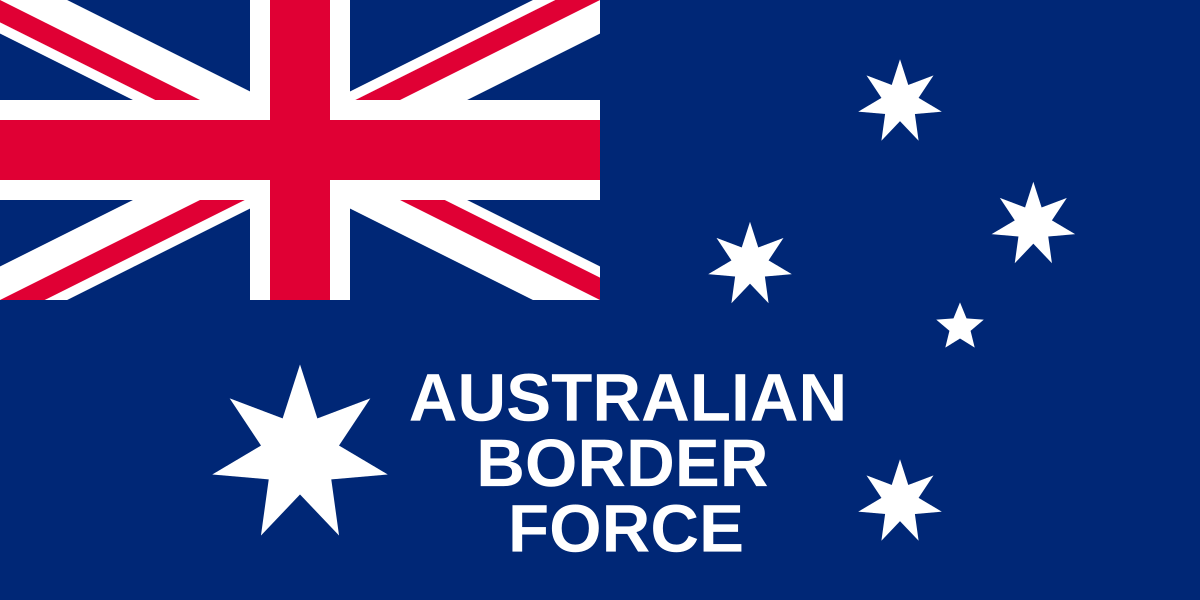Australian Border Forces Seize Computers, Phones and Passwords
ABF emblem. CC BY-SA 3.0
An Australian man and his partner returning to Sydney from a vacation said their cell phones were taken by the Australian Border Force and that they were forced to reveal the passwords so their data could be searched.
James, identified only by his first name, told the Guardian that he had no idea that authorities had the right to force travellers to seize their electronic devices and examine data held on them.
“We weren’t informed why they wanted to look at the phones. We were told nothing. Who knows what they’re taking out of it? With your phone and your passcode they have everything, access to your entire email history, saved passwords, banking, Medicare, myGov. There’s just so much scope.”
James said he and his partner had returned from a 10-day holiday in Fiji when they landed at Sydney airport and were taken aside. Their suitcases were emptied and the couple were told to write down their phone passwords.
The couples’ phones were taken into another room and examined and they were never told why. James told the Guardian he regarded the act as “an absolute gross violation of privacy”. His personal data included emails going back 15 years, his banking and medical information. Officials did not tell him if any of this information was copied or stored, who had access to it, or even the reason why officials wanted to examine it.
All of this, it turns out, is legal. Under the Customs Act, ABF officers have the authority to force people to hand over their passcodes to allow a phone search, including documents and photos on mobile phones.
A spokesperson for the ABF would not answer questions about the case, about how often the power is used, if and where the data is stored or if there were any breaches when personal data was confiscated.
The Guardian was told that anyone coming into Australia can be questioned and their phone searched “if [ABF officers] suspect the person may be of interest for immigration, customs, biosecurity, health, law-enforcement or national security reasons.”
The ABF spokesperson said that “Information seized from passengers’ phones has contributed to the success of many domestic law enforcement operations targeting illegal activities” and that anyone who refused to comply with a request for their devices to be searched “may be referred for further law enforcement action.”
Rights at the Border
Australia is not unique in giving officials sweeping powers to conduct suspicionless searches at its borders. But the disparity in individuals’ rights once they leave this areas is notable. Once a traveller has left an Australian airport, a warrant would be needed to compel a search of mobile device data.
Device searches at Australia’s borders have resulted in abuses in the past. In 2016 a man sued the ABF after an official sent and deleted text messages from his phone by an official. The police later apologised.
Electronic Frontiers Australia Chairman Justin Warren said that much about the ABF’s border searches was unknown. The organisation regularly refuses to release any information about the use of these powers, making it difficult to assess whether they are achieving their status purpose.
“There is no transparency, and the authorities prefer it that way,” Warren told the Guardian, adding that it showed the need for stronger privacy rights in Australia.
Others working in this area agree that the issue illustrates a wider problem for individual liberties in Australia. Samantha Floreani, program lead at Digital Rights Watch, said that the case “is a prime example of the kind of privacy violations that can occur when you don’t have fundamental human rights.”
She said that, “It is completely unreasonable that people should be subject to such an invasion of privacy without so much as an explanation.”
Barrister and member of the Australian Lawyers Alliance Greg Barns told 7NEWS.com.au that the law means Australians can be snooped on through their phones or computers at international airport arrivals with no legal recourse.
“The issue is because we don’t have proper privacy protections in Australia, we are not well protected and this can lead to an abuse of power by ABF officers.”
James, who also spoke to the station, said that officers “had access to the most intimate details of our lives… We had no idea what our rights were as I’m sure a lot of Australians probably wouldn’t.”
“I feel as though they should have to have some strong evidential grounds to invade our privacy like that.”
James’ experience first came to light after he wrote a post on the site Reddit, warning about the situation in Australia and recommending ways readers could avoid having phones searched.
“There is next to no transparency surrounding this process. It's unknown how frequently electronic devices are accessed and cloned at the border, where & how the data is stored, for how long, and who has access. Given the federal gov's history of security and IT bungles it doesn't inspire confidence,” the post said.
The post recommended visitors to Australia adopt operational security measures that might seem ardous to some - “travel with an old phone (using local SIMS where you are traveling to) that has been factory reset and then had a data erasing app run afterwards.” This was, the post added, “insane for a citizen of a country to have to worry about when re-entering their home border.”

